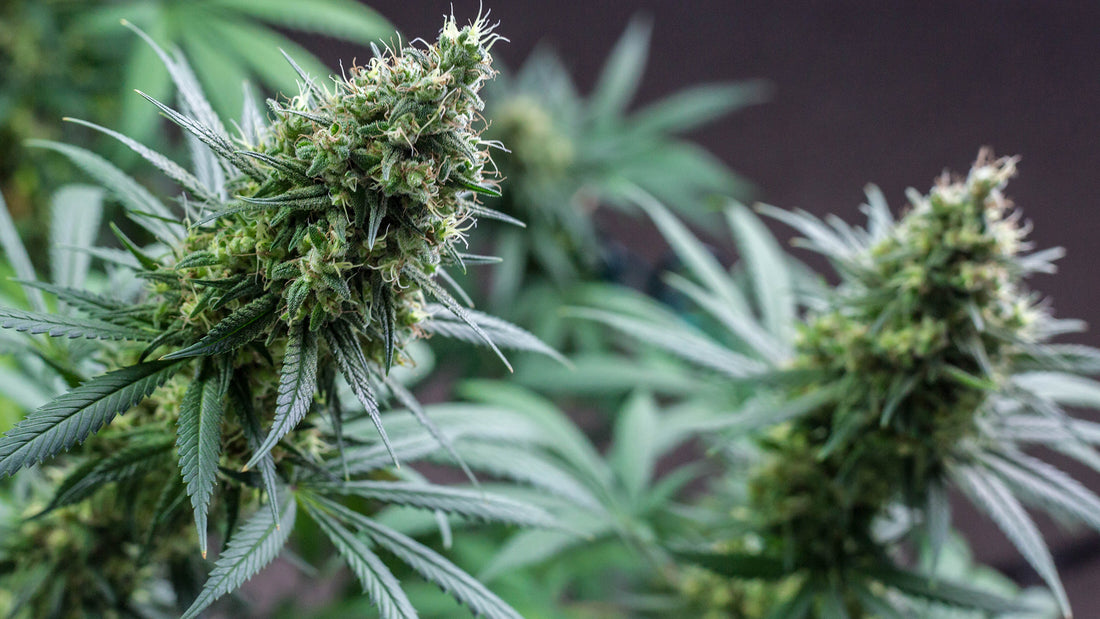Where do the CBD laws stand in 2023?
As cannabidiol (CBD) products become more popular or ‘mainstream,’ it’s understandable that people have questions about its legality. CBD, unlike the other dominant cannabinoid, tetrahydrocannabinol (THC), is non-psychotropic. What does that mean? It means that CBD isn’t going to give you that ‘euphoric high’ that consuming THC products would.
In the following article, we’re going to take a closer look at what is considered CBD, what the difference between hemp and marijuana is, and the current legal status of CBD products in the United States.
What Is CBD and What’s the Difference Between Hemp and Marijuana?
CBD is one of the two dominant cannabinoids found in the cannabis sativa plant. The other dominant cannabinoid is THC, but there are over 100 different cannabinoids that scientists have identified in the cannabis sativa plant so far.
Almost all CBD products you purchase commercially are made using CBD sourced from hemp rather than marijuana because hemp is naturally high in CBD and low in THC.
According to the CDC, hemp is defined as any part of the cannabis sativa plant which contains no more than 0.3% THC. This critical definition has helped to pave the way for the massive surge of CBD products entering the market.
Both hemp and marijuana belong to the cannabis sativa family. The only difference between the two is that any cannabis sativa plant which contains more than 0.3% THC is considered marijuana, and below 0.3% THC is considered to be hemp. The United States has a long history of commercial hemp production, and it was only in the last century that hemp lost favor as a commercial crop in the country. However, with the release of the 2018 US Farm Bill, that all changed, and hemp and CBD especially are now shining on center stage once again.
CBD Legality In the US
In 2018, the United States Congress passed and signed into law the Farm Bill or Agricultural Improvement Act. The most significant component of this new law was the fact that it removed hemp from the federal Controlled Substances Act, which effectively legalized hemp and CBD products at a federal level. It also effectively established a clear way to legally differentiate between marijuana and hemp, as we mentioned above.
However, it’s important to note that not all states removed hemp from their state’s controlled substances act. This means that the legality of hemp and CBD products can vary from state to state, and it’s essential to check your state’s CBD legality before buying CBD online.
It was the 2018 Farm Bill that effectively opened the gates to commercial CBD products, and since then, we’ve seen a massive increase in the number of companies producing and selling CBD products. Some of the mainstream companies selling CBD include CVS Health, Walgreens, GNC Holdings, and many more. You know, when the big retailers jump on board with something, it’s going to be huge!
CBD started off as basically one product, CBD oil or CBD tinctures. Many of these were flavored naturally, which isn’t the greatest when you’re not used to cannabis-flavored products. However, that all changed fairly quickly as different states started adopting the new federal laws in 2018.
Now, we have a huge variety of different CBD products available, including oils, tinctures, oral sprays, edibles, bath bombs, creams, lotions, and much more. There is even fresh CBD flower that you can purchase to smoke or vape, much like traditional marijuana products.
One of the most important things you can do as a consumer is to be careful about what CBD products you buy and where you buy them from, including online retailers. In addition, you need to make sure that the CBD products you’re purchasing contain less than 0.3% THC so as not to violate federal laws unless you’re living in a state where marijuana products are legal.
If you are new to CBD products, always take it low and slow. What does this mean? It means starting off with small amounts of CBD spread out over the day. Then, as you get more accustomed to CBD, you can gradually increase your dosage and frequency. It’s important to remember that no two people are the same and how you react to CBD may be completely different from how someone else may react.
Before trying CBD, always consult with your doctor or healthcare professional, as CBD can cause interactions with other medications, speeding up or slowing down the way your body processes them, which can cause negative side effects or reduce the effectiveness of the medication.
Is CBD Legal In the US? – Conclusion
It’s understandable that people get confused about whether or not CBD is legal in the United States and also the differences between CBD and other cannabinoids, such as THC. Hopefully, now you’ll have a much clearer idea about the legality of CBD products.
However, the information in this article is in no way intended to be used as legal advice. We strongly recommend you check with your local state laws or regulations before purchasing any CBD or ordering any CBD online. Each state’s laws may vary slightly, and it’s essential to know where you stand in your particular state. Ignorance of the law is no excuse!
If you have any questions about CBD or the legal status of CBD in the US or would like to learn more about CBD in general, please don’t hesitate to contact us directly. Also, if you would like to read more articles like this, then comment and share, or reach out and contact us directly.
Our professional and friendly team is happy to assist you with your CBD-related questions.

